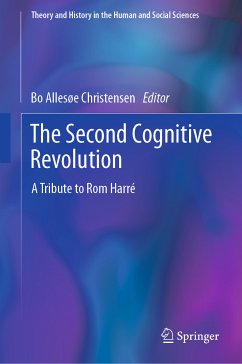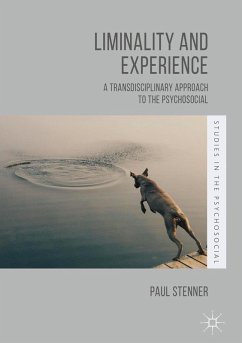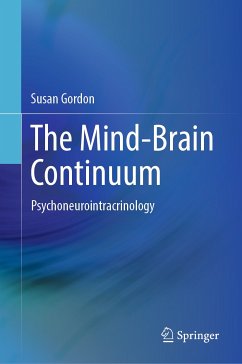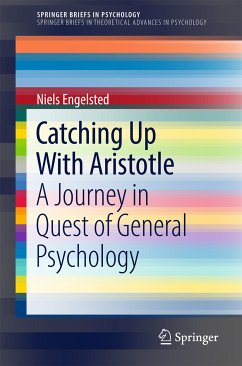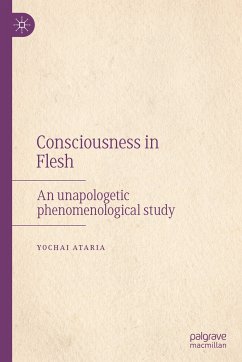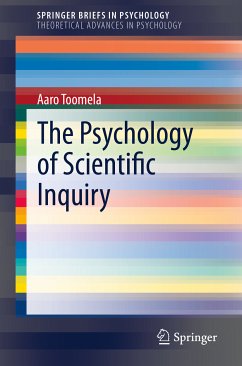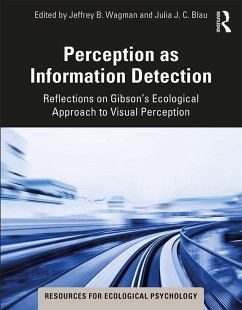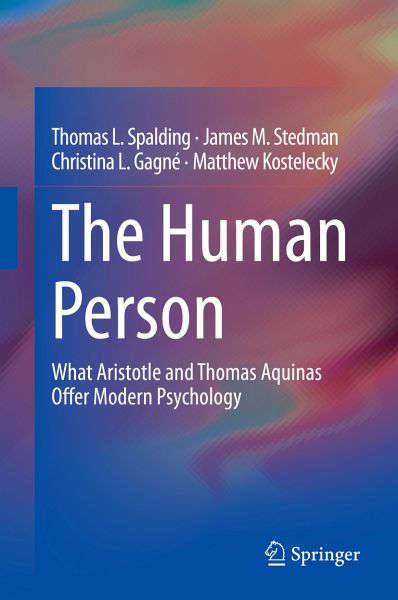
The Human Person (eBook, PDF)
What Aristotle and Thomas Aquinas Offer Modern Psychology
Versandkostenfrei!
Sofort per Download lieferbar
72,95 €
inkl. MwSt.
Weitere Ausgaben:

PAYBACK Punkte
36 °P sammeln!
This book introduces the Aristotelian-Thomistic view of the human person to a contemporary audience, and reviews the ways in which this view could provide a philosophically sound foundation for modern psychology. The book presents the current state of psychology and offers critiques of the current philosophical foundations. In its presentation of the fundamental metaphysical commitments of the Aristotelian-Thomistic view, it places the human being within the broader understanding of the world.Chapters discuss the Aristotelian-Thomistic view of human and non-human cognition as well as the relat...
This book introduces the Aristotelian-Thomistic view of the human person to a contemporary audience, and reviews the ways in which this view could provide a philosophically sound foundation for modern psychology. The book presents the current state of psychology and offers critiques of the current philosophical foundations. In its presentation of the fundamental metaphysical commitments of the Aristotelian-Thomistic view, it places the human being within the broader understanding of the world.
Chapters discuss the Aristotelian-Thomistic view of human and non-human cognition as well as the relationship between cognition and emotion. In addition, the book discusses the Aristotelian-Thomistic conception of human growth and development, including how the virtue theory relates to current psychological approaches to normal human development, the development of character problems that lead to psychopathology, current conceptions of positive psychology, and the place of the individual in the social world. The book ends with a summary of how Aristotelian-Thomistic theory relates to science in general and psychology in particular.
The Human Person will be of interest to psychologists and cognitive scientists working within a number of subfields, including developmental psychology, social psychology, cognitive psychology, and clinical psychology, and to philosophers working on the philosophy of psychology, philosophy of mind, and the interaction between historical philosophy and contemporary science, as well as linguists and computer scientists interested in psychology of language and artificial intelligence.
Chapters discuss the Aristotelian-Thomistic view of human and non-human cognition as well as the relationship between cognition and emotion. In addition, the book discusses the Aristotelian-Thomistic conception of human growth and development, including how the virtue theory relates to current psychological approaches to normal human development, the development of character problems that lead to psychopathology, current conceptions of positive psychology, and the place of the individual in the social world. The book ends with a summary of how Aristotelian-Thomistic theory relates to science in general and psychology in particular.
The Human Person will be of interest to psychologists and cognitive scientists working within a number of subfields, including developmental psychology, social psychology, cognitive psychology, and clinical psychology, and to philosophers working on the philosophy of psychology, philosophy of mind, and the interaction between historical philosophy and contemporary science, as well as linguists and computer scientists interested in psychology of language and artificial intelligence.
Dieser Download kann aus rechtlichen Gründen nur mit Rechnungsadresse in A, B, BG, CY, CZ, D, DK, EW, E, FIN, F, GR, HR, H, IRL, I, LT, L, LR, M, NL, PL, P, R, S, SLO, SK ausgeliefert werden.



